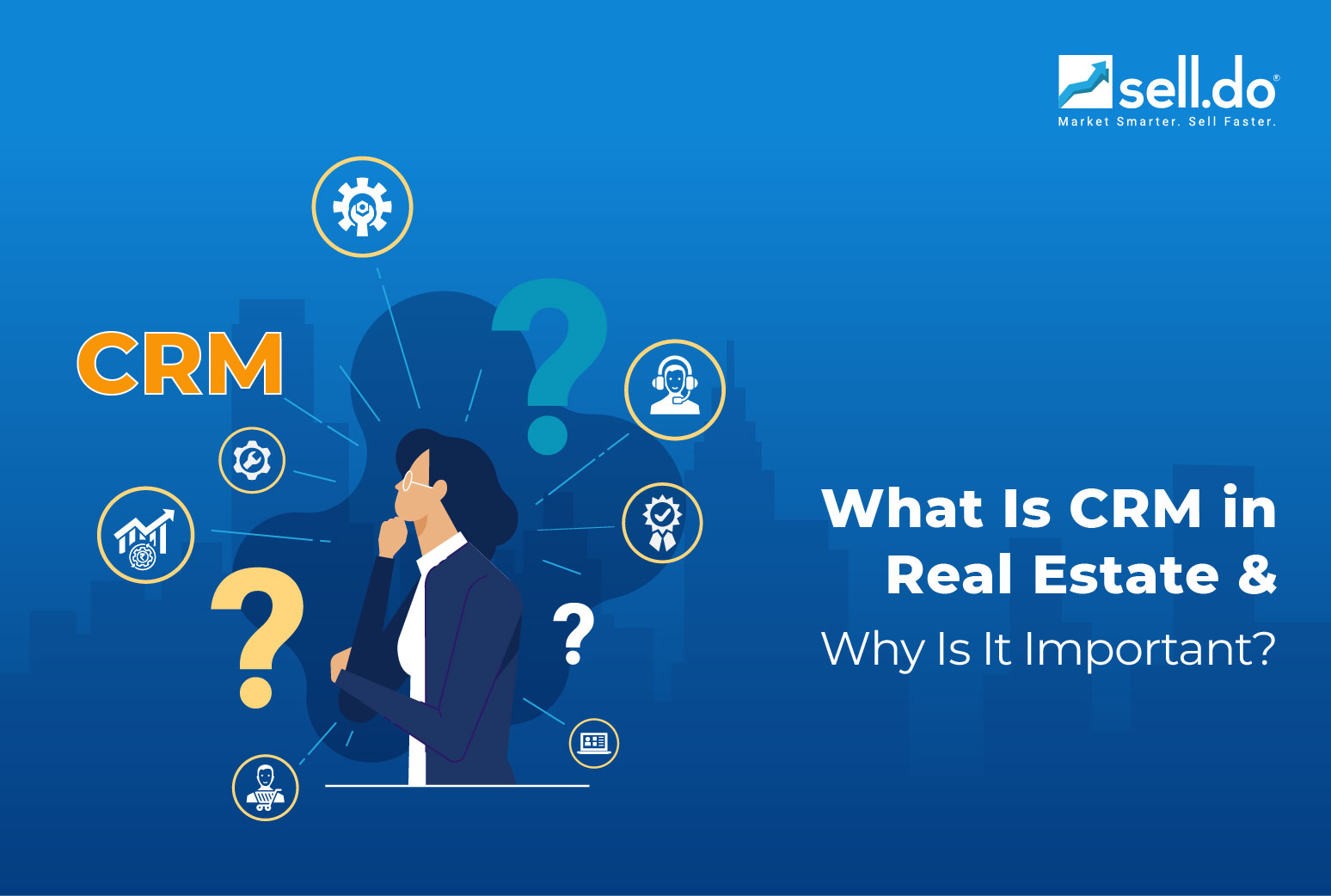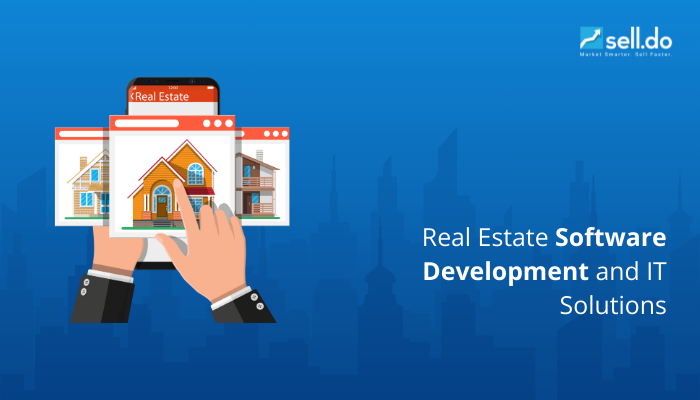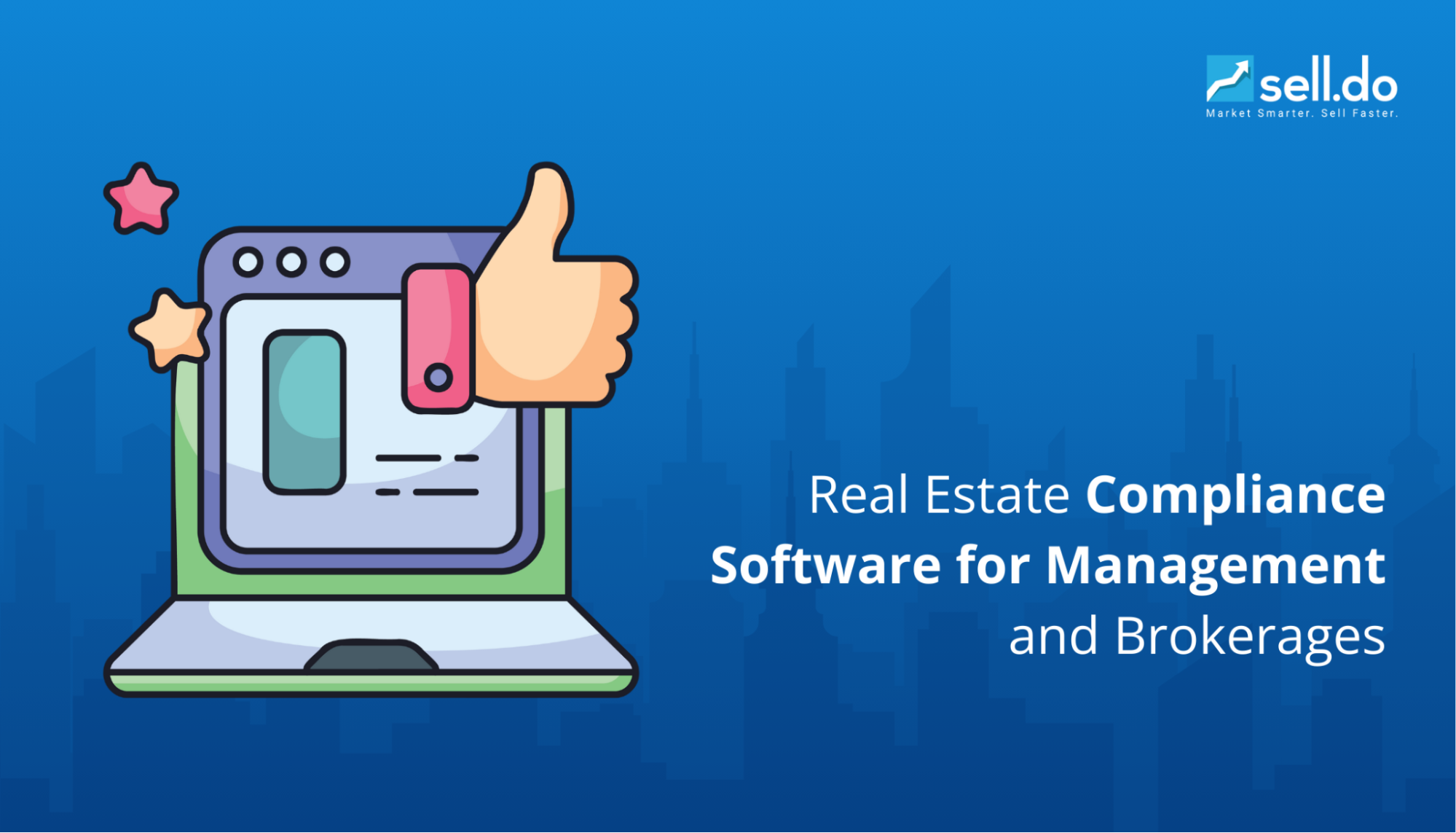Technology space, for a very long time, has been working towards solving business problems through innovative products and solutions. However, it is only in recent times that enterprises have started exploring solutions that are specific to their industry vertical and not some generic solution that can be customized.
Customer Relationship Management or CRM within SaaS space is witnessing this more than any other industry, and this has been confirmed by even market studies carried out by “MarketsAndMarkets” that says, investments in social CRM will increase across geographies and verticals, with the need of more business-specific solutions for enterprises.
So What is a Vertical Sales CRM? And how are they different from Generic or Horizontal Sales CRMs?
A Vertical CRM is made exclusively for any specific industry verticals like BFSI, Real Estate, Manufacturing, Healthcare & Retail. The software has all necessary considerations like sales cycle, business process, marketing channels, and prospect journey pre-programmed as per respective industry segment.
How is Vertical sales CRM different from any Generic CRM or Horizontal CRM?
Let us understand this difference through an analogy. Generic CRM offers an ‘à la carte, set-up where you order food as per your need with incremental costs additions after each ordered item. A vertical CRM is like those full-sized unlimited combo meals offered for every cuisine type. Here, based on past requirements and demands, a combo is offered that is unique for every cuisine type offered at an optimum cost and fit for a particular requirement.
Let us now understand this difference through practical considerations.
Implementation time
![Impact Of Vertical CRM On Marketing Automation And Sales Management]()
Like most SaaS products, even CRM needs time to set-up. If your CRM is a generic one like Salesforce, SAP, Oracle or Freshsales, they all need time in months to set-up and configure.
Generally, a variety of integrations like call center software, social media integrations, sales workflow development, setting-up marketing automation, lead nurturing set-up and other 3rd party implementations are needed. Now, these set-ups take times of somewhere around 2-3 months. In contrast, vertical CRMs come with pre-built integrations, workflows, and other lead journey activities, hence generally it takes 1/60th time to go live. This means you spend more time selling your products than setting your CRM.Implementation Cost
![Impact Of Vertical CRM On Marketing Automation And Sales Management]()
Every industry needs its own set of customizations for the CRM to implement properly.
Generally, these customizations include:
- Industry-specific workflows
- Cloud telephony and contact center integrations
- Inventory/Product Management
- Reporting & Dashboards
- Marketing KPIs
- Drip set-ups
- The necessary support to maintain all of this
Each of the above implementations invites additional costs. While these are mostly general customizations, there can be more customizations over and above the ones already mentioned, each of these adding to your overall costing.
Illustration of a Vertical Sales CRM Vs Generic Sales CRM: Example of a Real Estate CRM
For the sake of clear understanding, let us explore how Real Estate CRM affects overall sales management and marketing as compared to generic CRM used by real estate industry.
“Over the years we realized that, with CRM implementations either you spend time trying to adjust and learn the system or take time to adjust the system your way. Both ways you end-up losing sales man-hours and business” - Praveen Kumar, CEO Sell.Do
Features
Vertical Sales CRM - Sell.Do
Generic Sales CRM
Lead Capture
Web Lead Capture
Built-in, No Additional Cost
Customization Required, Additional Cost
Facebook LeadGen & Lead Capture
Built-in, No Additional Cost
Customization Required, Additional Cost
LinkedIn Lead Capture
Built-in, No Additional Cost
Customization Required, Additional Cost
Property Portal Integration
Built-in , No Additional Cost
Customization Required, Additional Cost
Billboard & Print Ad Lead Capture
Built-in, No Additional Cost
Customization Required, Additional Cost
Channel Partner Lead Capture
Built-in, No Additional Cost
Customization Required, Additional Cost
Lead Management
Assignment & Routing
Built-in, No Additional Cost
Customization Required, Additional Cost
Duplicate Booking
Built-in, No Additional Cost
Customization Required, Additional Cost
Lead Tracking
Built-in, No Additional Cost
Customization Required, Additional Cost
Machine Learning based Lead scoring
Built-in, No Additional Cost
Customization Required, Additional Cost
Sales Management
Task Management
Built-in, No Additional Cost
Customization Required, Additional Cost
Mobile App
Built-in, No Additional Cost
Customization Required, Additional Cost
Automated Email & SMS as per lead journey
Built-in, No Additional Cost
Customization Required, Additional Cost
Inventory Management
Built-in, No Additional Cost
Customization Required, Additional Cost
Cost Sheet
Built-in, No Additional Cost
Not Available
Booking
Built-in, No Additional Cost
Not Available
Marketing Automation
Campaign Management
Built-in, No Additional Cost
Customization Required, Additional Cost
Bulk Email & SMS
Built-in, No Additional Cost
Customization Required, Additional Cost
Drip Campaigns
Built-in, No Additional Cost
Customization Required, Additional Cost
Google Ads Integration
Built-in, No Additional Cost
Customization Required, Additional Cost
Facebook Adverts Integration
Built-in, No Additional Cost
Customization Required, Additional Cost
Above comparison makes the picture clear on how impactful it is to have a vertical CRM deployed instead of a generic one.
Access a detailed product comparison report of all generic CRM and real estate CRM for free. The report has detailed features, cost applications and feature list. Download report for free.
Even Forbes’ recent article affirms this vertical sales CRM impact. Here is what they said
“The universe of B2B-focused SaaS companies can be split into two categories: those with a horizontal focus and those with a vertical focus. While generic CRM has broad-reaching solution sold to thousands of sales departments globally across a multitude of industries and across companies of all sizes. On the other hand, vertical CRMs offers a suite of solutions is built to specifically address the needs of a particular niche.”
Conclusion
In the vertical SaaS movement, enterprise customers are the ultimate winners. Not only do they have a better-suited product but also save a lot of time and capital resources that can be employed for faster sales growth.
Reviewing a product and it’s deliverables from known sources and to evaluate value for money is far better than just going by the brand name. Hence, enterprises must have their CRM strategy worked out, post which, they can explore the market with a neutral view and choose the best available option.









Leave a comment
Comments (0)
Be the first one to comment.